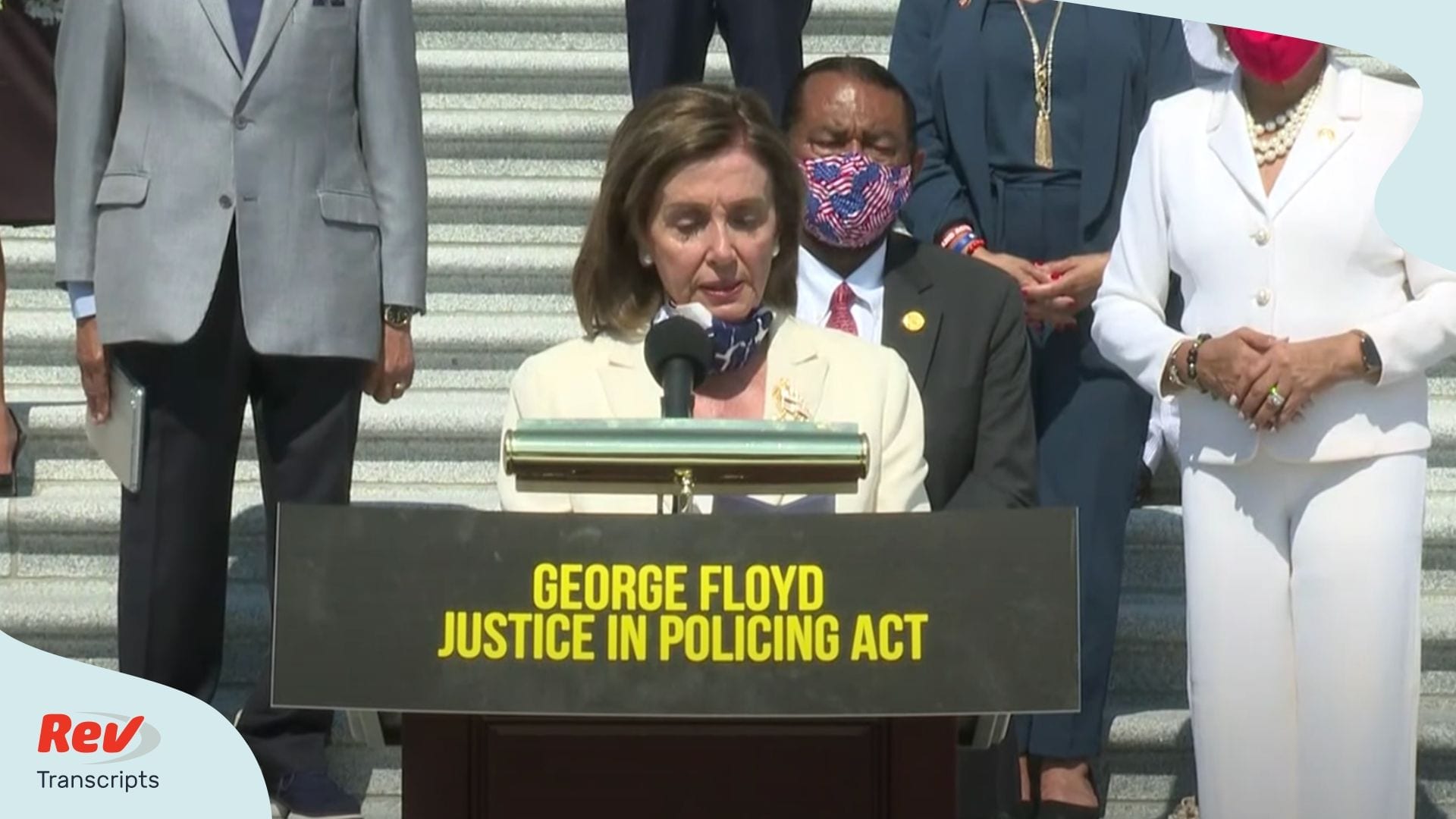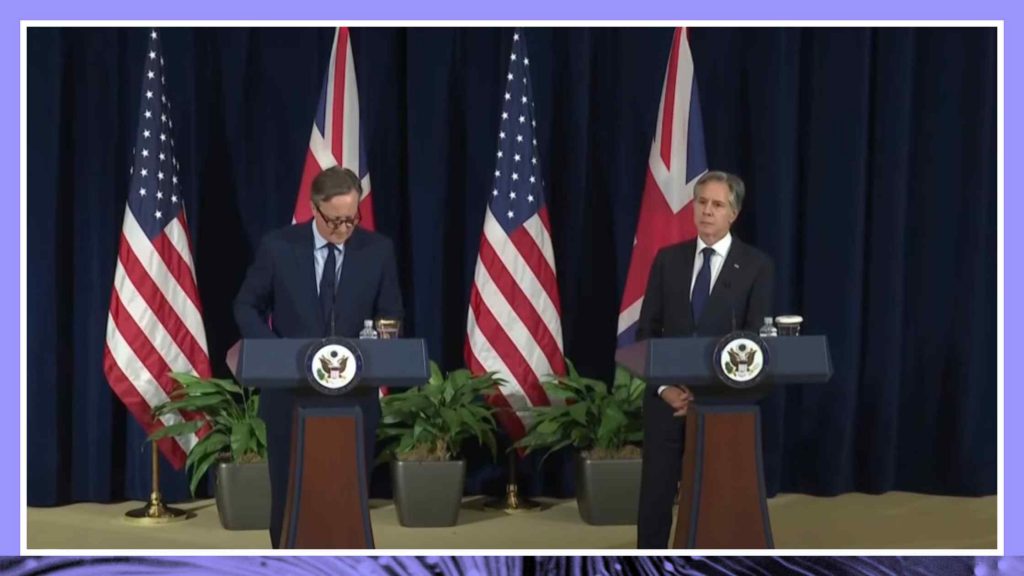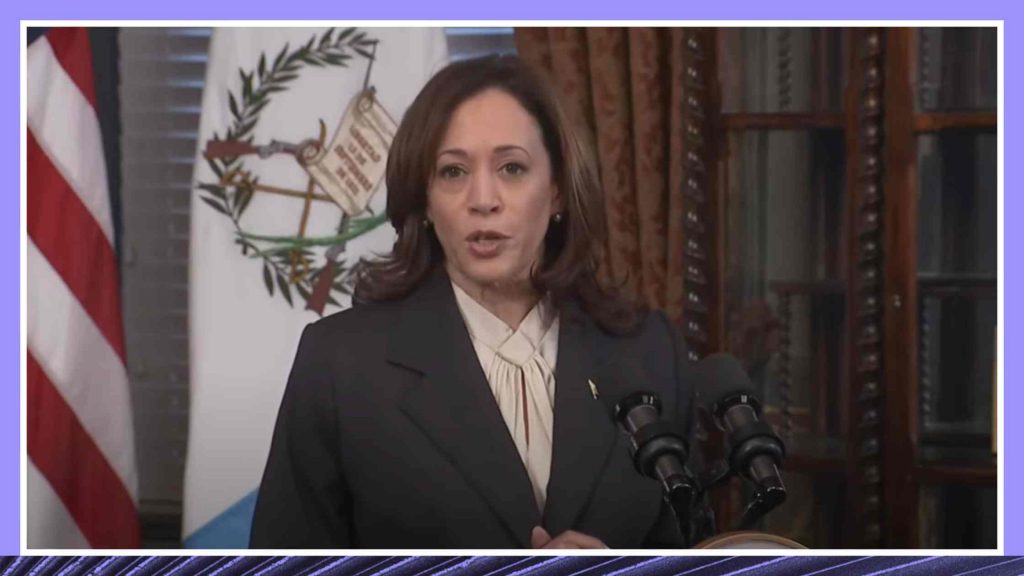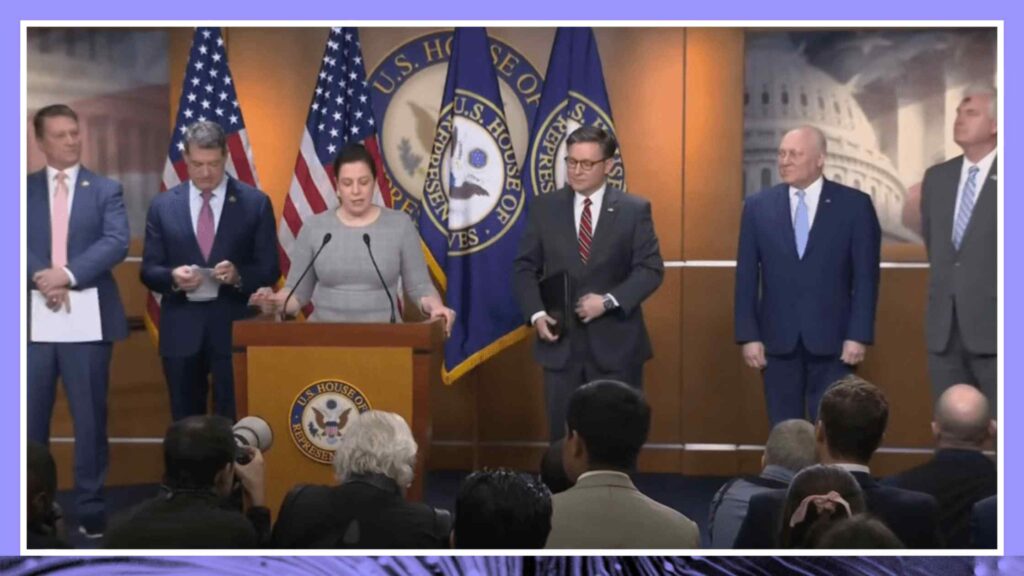Jun 25, 2020
Nancy Pelosi Press Conference Transcript – June 25 Before Vote on Justice in Policing Act

On June 25, Nancy Pelosi held her weekly press conference before a vote on the Justice in Policing Act. Read the transcript of the press conference here.
 |
 |
Transcribe Your Own Content
Try Rev for free and save time transcribing, captioning, and subtitling.
Karen Bass: (00:00)
Could I begin? Good morning everyone. Good morning.
Nancy Pelosi: (01:27)
Good morning.
Karen Bass: (01:29)
Today is a glorious day because this is the day we pass legislation to transform policing in America. This year, I have the honor … This year, I have the honor and the privilege to chair the Congressional Black Caucus. Next year will be the 50th anniversary of the CBC, and 49 years ago, the 13 members of the CBC were leading the fight in Congress to address the longstanding history of police abuse in the African-American community. In 1972, Representative Metcalfe led the way in developing an agenda to reform policing in black communities. It is in their memory and it is on their shoulders that all of us stand today, not just the Black Caucus, but the entire Democratic Caucus as we join together … As we join together to finally bring about the change the founding members of the CBC valiantly fought for.
Karen Bass: (02:36)
Although black Americans have had to deal with police abuse, murder by police officers since policing began in the United States, it was not until the advent of the cellphone camera that the stories of police abuse were finally exposed to the world. Before then, the deaths were simply disregarded, not believed, not acknowledged, but just as it took news camera coverage of the civil rights protests in the 1950s to reveal to the world the violence that was commonplace when African-Americans attempted to exercise their constitutional rights, the cameras exposed the reality that the right of life, liberty and the pursuit of happiness is not guaranteed to all African-Americans at all time. Policing was just not questioned, but now the world knows about the private ritual in African-American families, the rite of passage from childhood to adolescence, passed along to each generation since our arrival on this continent. A rite of passage to all boys and to most girls known as the talk. “When encountering the police officers, make sure you behave. Make sure you do as you are told no matter how humiliating because if you don’t you might not survive.”
Karen Bass: (03:51)
In my city in Los Angeles, young black men know to assume the position when told to get out of the car by police officers. Police officers joke and say that’s because they are LAPD trained, because they understand that assume the position means hands up on your head or drop to kiss the ground. Assume the position, assume your place, but on May 25, 2020, our world changed. This time was different. This time the video just couldn’t be questioned. The slow murder of George Floyd that took place over eight minutes and 46 seconds was just not up for speculation. Prior to this gruesome murder, some even questioned cellphone videos. “Well, we don’t really know what happened before the camera was turned on.” “Well what did he do? What crime did he commit? Because I never experienced anything like that. An officer never treated me like that so he must have done something to deserve to be killed.”
Karen Bass: (04:47)
Not this time. This time, hundreds of thousands of people in every state in the union are marching to make sure that he did not die in vain. His death will not be just another black man dead at the hands of the police. Sadly, people around the world are marching for human rights in America. The United Nations has held discussions about human rights in America. We are supposed to be the beacon of hope for human rights in other countries and the Justice and Policing Act is a bill for human rights in our country.
Karen Bass: (05:29)
To respond to the cry of hundreds of thousands who have marched every day since his murder, so we will never forget his name, George Floyd Justice and Policing Act establishes a bold transformative vision of policing in America that ends police brutality, that ends racial profiling, that ends the practice of denying Americans the ability to sue when they have been injured, and gives local jurisdictions the power to fire or prosecute offending officers. That bans chokeholds, no-knock warrants, and makes sure officers known to be abusive aren’t able to travel to different police departments after being fired. 12-year-old Tamir Rice would be alive today if the Justice and Policing Act had passed six years ago. It is fitting that today, we will pass this historic legislation. It is fitting because today, June 25, would have been Tamir Rice’s 18th birthday.
Karen Bass: (06:26)
A profession where you have the power to kill should be a profession that requires highly trained officers who are accountable to the public. Embarking on a journey toward a new vision for policing in America is only possible because of the incredible leadership in the House of Representatives.
Karen Bass: (06:51)
Speaker Pelosi has said she wants to see a bold transformative effort, and that is exactly what Justice and Policing will do. Madam Speaker.
Nancy Pelosi: (07:07)
Thank you Madam Chair. Liberty and justice for all. That is what we pledge allegiance to every day. Today, we stand across from the Supreme Court, where seven years ago today, the court undermined justice with the Shelby v. Holder decision to gut the Voting Rights Act which we have acted again to fix with our Voting Rights Advancement Act sitting over in the Senate. Today, we sit amid the injustice of the coronavirus which has disproportionately inflicted suffering on our communities of color which we enacted to address in the HEROES Act which sits over in the Senate. Today, we are standing here for justices as we bring forward the George Floyd Justice and Policing Act. Exactly one month ago, George Floyd spoke his final words, I can’t breathe, and changed the course of history. Since that horrific day, Americans from every walk of life and corner of the country have been marching, protesting, and demanding that this moment of national agony become one of national action. Today, with the George Floyd Justice and Policing Act, the House is honoring his life and the lives of all killed by police brutality and pledging never again.
Nancy Pelosi: (08:36)
The George Floyd Justice and Policing Act will fundamentally transform the culture of policing to address systemic racism, curb police brutality, and bing accountability to our police departments. It will save as the distinguished chair of the Black Caucus, author of this resolution has spelled out. Two weeks ago, Philonise Floyd, the brother of George Floyd, testified powerfully before the Judiciary Committee. He said then, “The people marching in the streets are telling us enough is enough. Be the leaders that this country, this world needs.” He went on to say, “George’s name means something. If his death ends up changing the world for the better, and I think it will,” he said, “I think it has, then he died as he had lived. It is on you to make sure his death isn’t in vain.”
Nancy Pelosi: (09:38)
Today, we have the opportunity and the obligation to ensure that his death and the deaths of so many others are not in vain. When we pass this bill, the Senate will have a choice, to honor George Floyd’s life, or to do nothing. I thank the Congressional Black Caucus for bringing us together on this historic day as we prepare to pass once again the George Floyd Justice and Policing Act. We are blessed to be led by the CBC chair Karen Bass, who brings 47 years of leadership advocating for racial justice and an end to police brutality. Thank you to the Judiciary Committee chair Jerry Nadler for his leadership, also to Representative Sheila Jackson Lee, Representative Emanuel Cleaver, and all of the Judiciary Committee members and Black Caucus members and other caucuses of the Congress as well for their tireless work to bring this bill to the floor. We are privileged to be joined with Kristen Clarke, president of National Lawyers’ Committee for Civil Rights Under Law, a champion for equal justice in America. We welcome you and thank you for your leadership, and with that, it is my honor and privilege at this time to yield to the distinguished chair of the Judiciary Committee, Jerry Nadler. Mr. Nadler.
Jerry Nadler: (11:06)
Thank you. More than 20 years ago, I marched in New York after Amadou Diallo was gunned down with 41 shots by New York City police officers after reaching for his wallet. 15 years ago, officers unleashed 50 bullets killing Sean Bell the night before his wedding day, and today, we see how little black lives still matter in this country, in too many parts of this country, with too many police officers with too many people. We must change this. It is long past time to change this. Today, I join with millions of Americans across this country in saying enough is enough. I am proud to join my colleagues in delivering on the promise that so many of us have made that real change is on the way. Today, we will pass the legislation that will reimagine policing for the 21st century and will hold officers who commit misconduct accountable for their actions.
Jerry Nadler: (12:09)
The House will do its duty and will pass the Justice and Policing bill today. I hope the Senate will do the same, but I fear it will not. This is not the time for half measures. It’s not the time for further study. It’s not the time for sham fake reform. The Senate bill is sham fake reform. It gestures, it uses some of the same words, but it does nothing real. We must insist, the country insists, on real change that Black Lives Matter and that the Senate, the Republicans in the Senate, cannot be allowed, and will not be allowed, to thwart the will of the country. They must support our legislation and I predict that eventually, it may take a while for the pressure to build up in the country, they will. Thank you.
Speaker 4: (13:23)
Little [Gianna 00:13:24] said in the aftermath of the death of her father, “Daddy has changed the world.” So as I stand here today, let me proclaim, as a member of the United States Congress, the Congressional Black Caucus and this outstanding Democratic Caucus, that the George Floyd Justice and Policing Act is not a figment of our imagination. It’s not an idea that we just wanted to exhibit our prowess of the law, but this legislation is America’s legislation. It is a patriotic stance that says that we all are created equal under the law and we are not to be denied that equality.
Speaker 4: (14:21)
This is an emotional day for many of us who have worked for decades on police reform and ending police brutality. It is an emotional day for many of us who have interacted with America’s law enforcement, citing the good deeds and mourning those who have fallen in the line of duty. Do not dare to suggest this outstanding speaker, Chairman of the Judiciary Committee, civil rights leaders, Ilhan Omar, and our chair, Karen Bass and others, have any angst or stance against law enforcement. What we are saying is in this time, in the multitude of sections of this bill, in complete contrast to the lack of substance of the Senate bill, is that we list a roadmap, a pathway, for justice in this nation. That justice is qualified immunity that gives the right to the victim to be heard as well in the courthouse.
Speaker 4: (15:33)
It gives the right to a federal ban on no-knock, and it gives the right to ending chokeholds on a federal law. There are many other things and I would imagine that black parents will always give the talk, but isn’t it better to have a federal end to racial and religious profiling, no matter what you’re wearing, what your attire is, what the color of your skin, that you’re not stopped because you don’t look like everyone else. That is what this bill does.
Speaker 4: (16:13)
So I am grateful to all that have put and stood in the creation of this bill. I am grateful to my Judiciary Committee colleagues who will work unceasing and work under the leadership of the Congressional Black Caucus. We know that that takes a lot, and as it takes a lot, we have come to this day to answer the call of a little girl who understood too soon that her daddy would not be with her, and I am grateful that we are here today to be able to say that Gianna, we know that Daddy has changed the world.
Speaker 4: (17:00)
I don’t want to leave these families out as I close. I want you to know that the mothers of Eric Garner, Tamir Rice, and the father of John Crawford, wanted you to hear these words. The unjust killing of a loved one, especially at the hands of law enforcement, is a pain too many families have been forced to endure. We are proud to support this effort because it’s the right thing to do, from banning chokeholds to eliminating no-knock warrants. This bill will hold officers accountable to the communities they serve and yes, compel them to have a guardian mentality, not a warrior mentality. In the valiant pursuit of justice, this is a strong step in the right direction. God bless this nation, for they are now turning the corner. This is America’s bill for a new America in policing. I’m delighted to bring Kristen Clarke forward who has also had a lifetime of continued work and fight for justice and civil rights. Kristen Clarke.
Kristen Clarke: (18:08)
Good morning. My name is Kristen Clarke. I am the president and executive director of the Lawyers’ Committee for Civil Rights Under Law, and today is a good day. I’m here today to sound the alarm on the urgency of passing the George Floyd Justice in Policing Act, which the Lawyers’ Committee is proud to endorse and to thank Speaker Pelosi, Representative Bass, Leader Hoyer, Representative Jackson Lee, Representative Nadler, and Representative Cleaver for moving with all deliberate speed to bring this bill to a floor vote today. The killing of Mr. Floyd a month ago resounded with millions of people across the country and across the globe, who have united under one banner and under one simple and unbridled truth, Black Lives Matter.
Kristen Clarke: (19:04)
Now we are at a turning point as a nation where people across the country are urging our government to take bold and transformative steps to fundamentally change the broken relationship between law enforcement and people of color across our country. The George Floyd Justice in Policing Act meets the challenge of this moment by incentivizing officers to act as peacekeepers and partners with the community. Incentivizing de-escalation and banning police techniques like chokeholds and no-knock warrants in drug cases. It’s a bill that would create stronger accountability mechanisms for officers who break the law and violate our civil rights. This is a bill that will end qualified immunity and strengthen the ability of the Justice Department to hold officers accountable. It’s a bill that will create a national registry of officers who have broken the law or committed misconduct so they can’t be simply rehired in another state.
Kristen Clarke: (20:11)
In moving testimony from George Floyd’s brother, he said George wasn’t hurting anyone that day. He did not deserve to die over $20.00. Then he asked if a black man’s life is worth $20.00. Tragically even as this bill is being considered, our nation mourned the killing of Rayshard Brooks, an African-American man shot and killed by a police officer in Atlanta who was in the process of arresting him after waking him from sleeping in his car in a Wendy’s parking lot. The killing of black men and women across our nation like George Floyd, Breonna Taylor, Rayshard Brooks, Eric Garner, Philando Castile, Alton Sterling, Tamir Rice, this is a cancer of racism in our nation that must be confronted. It is the civil rights issue of our time and it is past time that we acted.
Kristen Clarke: (21:16)
The Lawyers’ Committee, the organization that I lead, was founded at the request of President John F. Kennedy in 1963 during the height of the Civil Rights Movement because he wanted to mobilize lawyers to protect the civil rights of African-Americans and other people of color and here we are in 2020, still fighting the same fights. Enough is enough.
Kristen Clarke: (21:41)
When the law does not sufficiently protect people, we come to Congress and ask for change and they have delivered. The moment is now. We ask that you all support the George Floyd Justice and Policing Act to ensure that people of all races, colors and creeds have the right to equal treatment and protection under the law so that we can all live up to our nation’s most cherished principles. Thank you.
Speaker 6: (22:17)
Madam Speaker, Madam Chair, there is I believe a suicide gene in all nations but particularly those who cherish their freedom. It is the responsibility of each new generation to move with haste to push back that gene and that is exactly what young people all over this country have been doing. I stood up in Kansas City, Missouri, in front of thousands of young black, white and brown young people, saying they wanted change, and they wanted it now. I almost [inaudible 00:23:19] when I stood up and looked out at all of those young people, and the majority of whom were white. What they are saying is this is not a black issue, this is an American issue, and they’re condemning the adults for having not done anything.
Speaker 6: (23:39)
Now let me just say that I [inaudible 00:23:44] last night, I live [inaudible 00:23:45] right across the street and I was reading out of a book that I read, I actually read, and stumbling through the fifth chapter of that book, I saw the words, “You are the salt of the earth. But when the salt loses its flavor, it is of no good to anyone.” Congress has been looked upon by these young people as the salt of this nation and if we lose our flavor, we lose our commitment to change, and we lose our responsibility to listen to what they have been telling us, then we are of no good to anyone in this nation.
Speaker 6: (24:43)
Now let me say very clearly I will not, we cannot, succumb to congressional timidity. We will stand this time, stronger and tougher than we’ve ever stood before. We are ready now to respond to these young people. We will be the salt of this nation.
Karen Bass: (25:12)
Historically, whenever great change, great transformative change has taken place in our country, it’s because there has been a mass movement that has demanded that change. George Floyd was killed in Minneapolis, Minnesota, and that was the beginning of a new chapter in a long history to transform policing in America and I want to acknowledge the representative from Minneapolis, Minnesota who is with us here today, Ilhan Omar. She was here today.
Speaker 8: (25:58)
She’s presiding on the floor.
Karen Bass: (26:00)
Oh, she is presiding on the floor, exactly where she should be. That movement started in her city and we are going to make a huge step forward in that movement today because 231 members of the Democratic Caucus have co-sponsored the George Floyd Justice and Policing Act. We’re going to go forward now on the floor and begin the process of transforming policing in America. Thank you.
Transcribe Your Own Content
Try Rev and save time transcribing, captioning, and subtitling.



